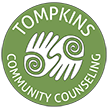Treatment Modalities Used
Cognitive Behavioral Therapy, or CBT is often successful in addressing mood disorders (depression, anxiety, OCD etc,), trauma, harmful interpersonal relationships, and many other mental health challenges. The basic approach to CBT is recognizing that many of our problems and dysfunctions stem from faulty thinking and learned behaviors. Changing negative thinking patterns promotes positive behavioral change. CBT helps challenge your negative self talk and image to create a new you.
Eye Movement Desensitization and Reprocessing Therapy, or EMDR is used to resolve trauma (abuse, neglect, and PTSD), depression, anxiety, and other mental health challenges. The goal of EMDR is to process unresolved trauma or a specific disturbance to stop the client from responding to their stressors in a fight, flight, or freeze response—a response also known as being “triggered”. This response often leads to one’s needs not being met, being overwhelmed with negative emotions, and not feeling safe. By desensitizing the trauma or emotional disturbances, you will be able to make decisions using your cognition rather than being overwhelmed with emotion. Clients who have experienced EMDR as part of their counseling describe feeling more in control of their lives.
Family Systems Therapy uses the whole family system to resolve problems. It is based on the premise that what happens to one member of the family happens to all family members. Our problems often begin within the context of the family we were raised in. Under this approach, we engage all family members to resolve the identified issue.
Dialectical Behavior Therapy, or DBT is a form of Cognitive Behavioral Therapy that has been shown to be effective in treating clients with Borderline Personality Disorder. DBT teaches new skills to help manage painful emotions and decrease conflict in relationships. There are four main areas to support this process: mindfulness, distress tolerance, emotional regulation and interpersonal effectiveness.
Emotional-Freedom Technique, or EFT is based on the premise that identifying emotions supports awareness and helps to solve problems. It supports healing from physical and emotional pain. Without the use of needles, this form of acupuncture uses the fingertips to stimulate energy points in the body.

